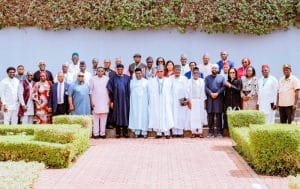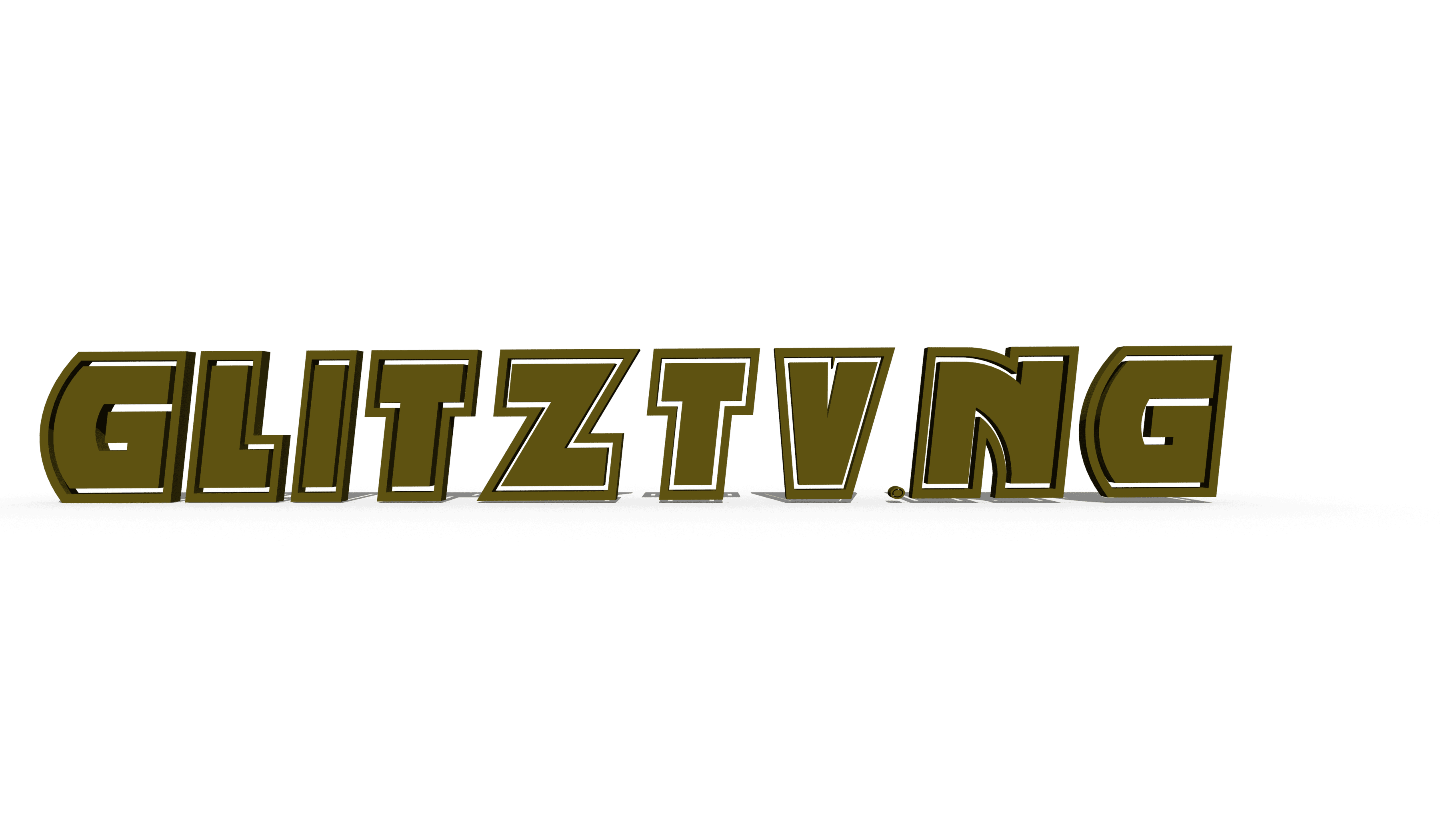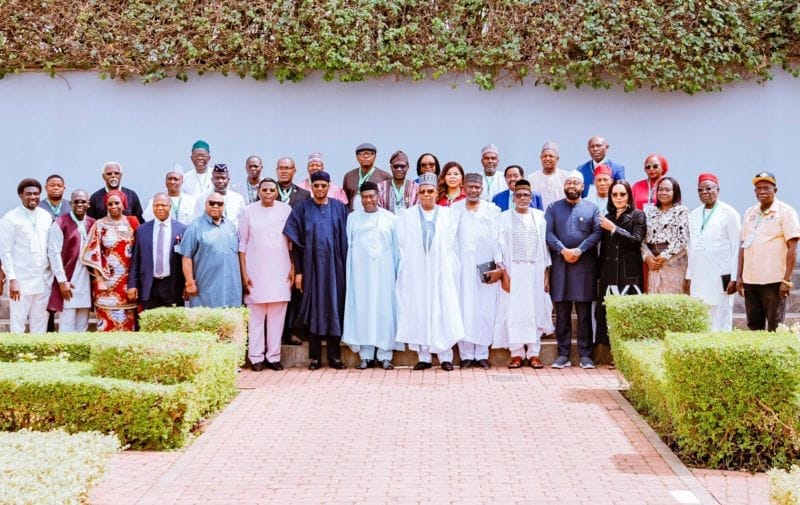The Nigerian government has established a committee to negotiate a new national minimum wage for government workers in the country. This is the first step towards changing the current minimum wage of N30,000 that has been in place since 2019.
This move comes exactly eight months after President Bola Tinubu promised to increase the minimum wage when he announced that the government would stop paying petroleum subsidies.
The committee, headed by Bukar Goni Aji, a former Head of Civil Service, will consist of members from federal and state governments, the private sector, and organized labor, according to the Secretary to the Government of the Federation, George Akume.
Members from the federal government include Nkeiruka Onyejeocha, Minister of State for Labour and Employment; Wale Edun, Minister of Finance & Coordinating Minister of the Economy; Atiku Bagudu, Minister of Budget Economic Planning; and Yemi Esan, Head of Civil Service, among others.
Representing the state governments on the committee will be six state governors, one from each of the six geopolitical zones of the country. They are Mohammed Umar Bago of Niger State (North Central), Bala Mohammed of Bauchi State (North East), Umar Dikko Radda of Katsina State (North West), Charles Soludo of Anambra State (South East), Ademola Adeleke of Osun State (South West), and Otu Bassey Edet of Cross River State (South South).
The organized labor will be represented by Joe Ajaero, the chairman of Nigeria Labour Congress (NLC), Festus Osifo, his counterpart from the Trade Union Congress (TUC), and other top officials from the NLC and TUC.
In addition, leaders from the private sector, including the Nigeria Employers’ Consultative Association (NECA), Nigeria Association of Chambers of Commerce, Industry, Mines and Agriculture (NACCIMA), National Association of Small and Medium Enterprise (NASME), and Manufacturers Association of Nigeria (MAN), will also be part of the committee.
The main terms of reference for the committee, as stated by the Secretary to the Government of the Federation, George Akume, are to “arrive at a fair and sustainable minimum wage” that recognizes the dignity of work and ensures that every Nigerian has the opportunity to earn a living wage that allows them to meet their basic needs and participate fully in society.
It is not clear when the committee is expected to submit its report, but Vice President Kashim Shettima, who conducted the inauguration ceremony, urged the committee members to ensure the timely submission of their recommendations.
The first national minimum wage act, which came into existence in 1981, set the minimum wage at N125 per month. It increased to N250 per month in 1991 and reached N5,500 per month by the year 2000. In 2011, the minimum wage was further increased to N18,900 per month before President Muhammadu Buhari signed a new minimum wage act of N30,000 into law in April 2019.
The minimum wage law applies not only to the federal government but also to state governments and private employers. There are exemptions to the law, such as companies that employ people on a part-time basis or pay based on commission, seasonal companies like those in agriculture, and companies with fewer than 25 employees.

The punishment for non-compliance with the law is a fine of ₦250,000 or six months imprisonment, or both. However, in practice, this has not been strictly enforced. In May 2022, the former President of the Nigeria Labour Congress, Ayuba Wabba, stated that four states in Nigeria had not implemented the new minimum wage. Additionally, many private nursery and primary schools across the country still pay their teachers below N30,000 per month.






These money is not up to what the government lood, the teachers are suffering no increase in salary,no accurate payment nor early payment of salary, no increase in minimum wage, no refunds of withheld salaries for months yet all you think is to reduce their wages that are rightfully supporting the teachers I thought this government were going to be better than other government experienced